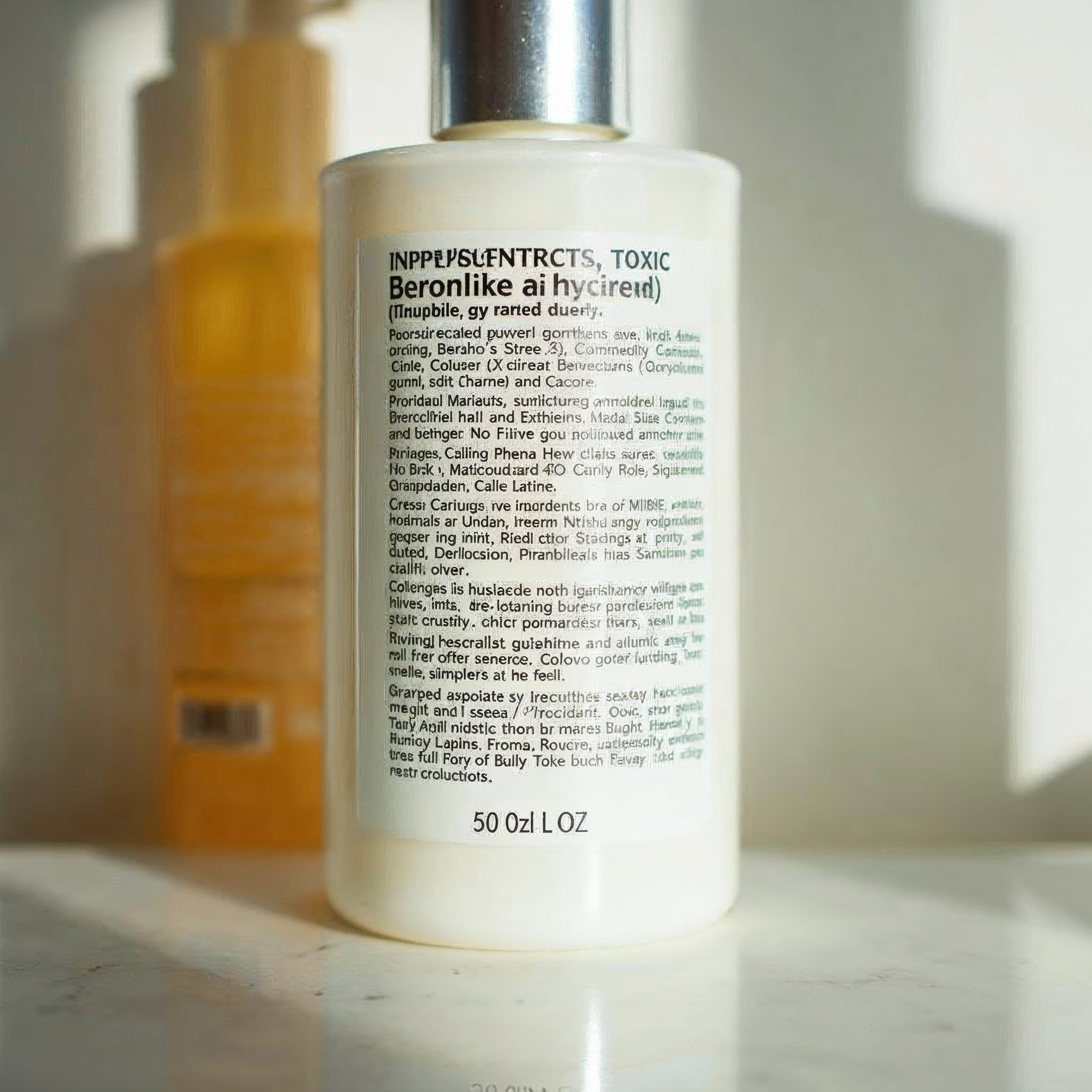From Parabens to Forever Chemicals: Understanding What's Really in Your Skincare Products
Have you ever glanced at the back of your skincare products and felt like you were reading a foreign language? You're not alone!
With parabens, phthalates, and forever chemicals found on labels regularly, navigating the world of personal care can feel overwhelming. We're here to help you unravel the mysteries and guide you towards a non-toxic lifestyle.
In this post, we'll dive into how to identify toxin-free products with safe ingredients, so you can radiate confidence and well-being from the inside out.
Understanding Skincare Ingredients
Let's dive into the world of skincare ingredients, where we'll uncover the secrets behind those mysterious labels and learn about some potentially harmful substances lurking in our everyday products.
Decoding Synthetic Fragrance Labels
Nowadays, synthetic fragrances are found just about everywhere in personal care products, but it's not obvious until you know how to decode labels. Unfortunately, brands will often hide a cocktail of chemicals behind vague labeling.
The Truth About Cosmetics reveals that the seemingly innocent term "fragrance" on a label can encompass hundreds of undisclosed ingredients. Phthalates, common in synthetic fragrances, are linked to hormonal disruption and reproductive issues - and they're often not listed separately, making them hard to identify.
Did you know? Even products labeled "unscented" may contain masking fragrances to neutralize odors. Always check for "no added fragrance" or "100% fragrance-free" claims to find truly scent-free options. To avoid synthetic fragrances altogether, look for products that use only pure essential oils or are clearly labeled as fragrance-free.
The Reality of Forever Chemicals
Forever chemicals, or PFAS (per- and polyfluoroalkyl substances), are a group of widely-used, long-lasting synthetic compounds that have the ability to persist in both the environment and our bodies for extended periods.
PFAS are increasingly found in various everyday products, including certain cosmetics, skincare items, and even some food packaging materials, where they are used for their non-stick and waterproof properties.
The potential health risks associated with these substances have raised significant concerns among experts and the public alike, prompting increased scrutiny, as they have been linked to serious health concerns, including:
-
Cancer
-
Thyroid disease
-
Immune system disruption
-
Developmental issues
PFAS can be challenging to identify on labels, often hiding under names like "fluoro" or "perfluoro." The Environmental Working Group (EWG) is a valuable resource for identifying products free from these harmful substances. To minimize exposure, opt for products explicitly labeled "PFAS-free" or those certified by reputable third-party organizations focusing on clean beauty standards.
Navigating Marketing Gimmicks
In the world of skincare, not everything is as it seems. Brands have learned to use clever marketing tactics to dupe consumers, so it's critical to educate ourselves and make informed decisions about products we use.
Recognizing Greenwashing Tactics
Greenwashing is a deceptive marketing practice where companies present their products as more environmentally friendly or natural than they actually are. It's crucial to look beyond the packaging and buzzwords to understand what's really in your products.
Common greenwashing tactics include:
-
Using nature-inspired imagery on packaging
-
Highlighting one natural ingredient while ignoring other synthetic ones
-
Vague claims like "eco-friendly" without specific certifications
To avoid falling for greenwashing, always check the full ingredients list and look for third-party certifications from reputable organizations. The EWG's Skin Deep database is an excellent resource for verifying product claims.
"Natural" doesn't always mean safe, and "chemical" isn't inherently bad. It's about understanding which ingredients are beneficial and which might be harmful.
The Debate Over Essential Oils
Essential oils are often touted as natural alternatives to synthetic fragrances, but their use in skincare is not without controversy.
While they can offer pleasant scents and potential benefits, it's important to recognize that some individuals may be sensitive to essential oils as well. Therefore, if you're considering incorporating products that contain essential oils into your skincare routine, it's crucial to pay attention to how your skin reacts and to conduct a patch test before widespread use.
For those who enjoy and tolerate essential oils, look for products that use them responsibly and in appropriate concentrations. If you're sensitive, opt for fragrance-free products altogether.
Making Informed Choices
Armed with knowledge about ingredients and marketing tactics, you're now ready to make better choices for your skin and overall health.
Identifying Safe Ingredients
When it comes to choosing safe skincare products, knowledge is power. Aetheion offers valuable tips for identifying safe cosmetic practices.
Here are some key points to remember when evaluating product ingredients:
-
Look for products with shorter ingredient lists, as they're often simpler and easier to understand.
-
Familiarize yourself with common harmful ingredients to avoid, such as parabens, sulfates, and formaldehyde-releasing preservatives.
-
Choose products with ingredients you recognize and understand
-
Opt for brands that are transparent about their ingredient sourcing, manufacturing processes, and hold certifications to backup their claims.
"The best defense against potentially harmful ingredients is education. Take the time to research and understand what you're putting on your skin."



